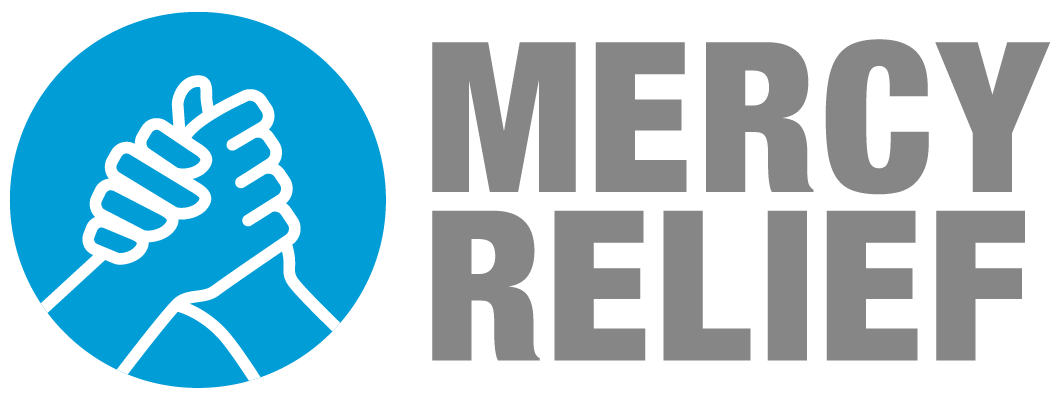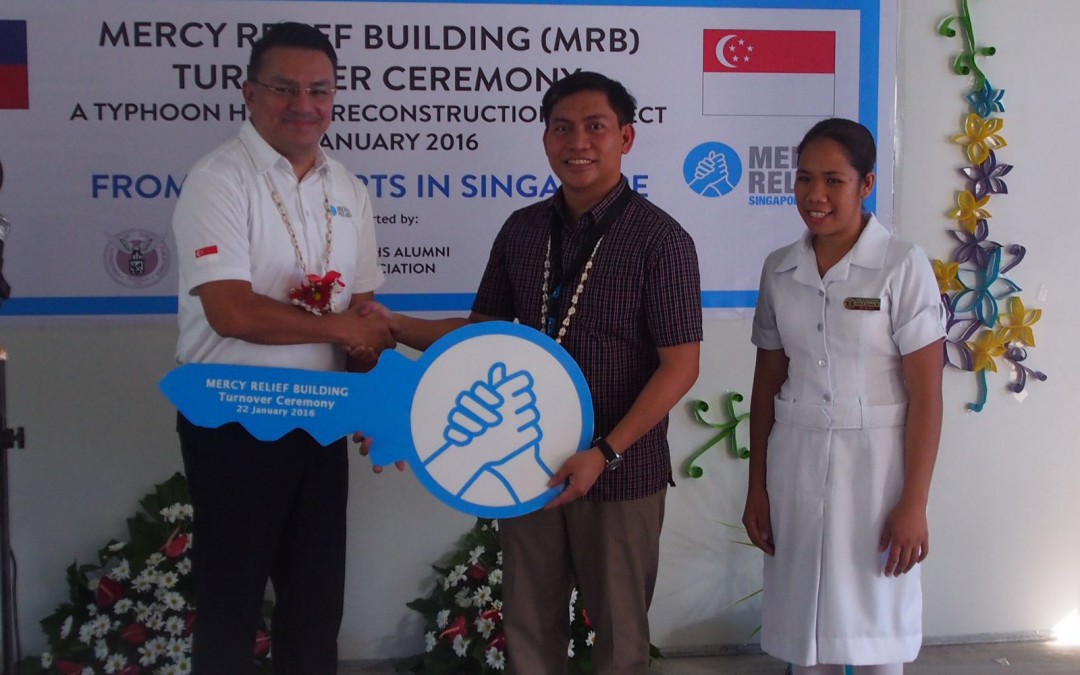Vice Chairman of Mercy Relief Mr Suhaimi Rafdi hands over the Mercy Relief Building key to Dean of School of Health Sciences, University of Philippines Manila, Dr Salvador Isidro B. Destura, at the inauguration ceremony on Friday, 22nd January 2016 at the University of the Philippines Manila, School of Health Sciences, Palo, Leyte.
SINGAPORE, 22 January 2016 – SINGAPORE’S homegrown humanitarian nongovernmental organisation (NGO) Mercy Relief has inaugurated its 7th post-Typhoon Haiyan community rebuilding project in the Philippines on 22nd January 2016. The newly reconstructed Mercy Relief Building of the University of the Philippines, Manila – School of Health Sciences (UP-SHS), in Palo, Leyte province of the Philippines, was funded by donations from people in Singapore and will serve as a space for learning for the university’s students and faculty members.
The Palo campus of UP-SHS was badly damaged by Typhoon Haiyan when it made landfall in Tacloban City, the Philippines in November 2013. The new Mercy Relief building is a pre-fabricated modular building is able to house three classrooms and is able to withstand natural hazards including strong winds and earthquakes. UP-SHS serves an annual intake of 250 medical undergraduates trained to serve communities living in rural areas of the country.
Mercy Relief’s Executive Director Zhang Tingjun said, “We are thankful and honoured to be able to do our part in helping to rebuild the lives of Typhoon Haiyan survivors. We identify strongly with UP-SHS’s mission of training competent health workers who will serve rural communities in the Philippines as we believe it is crucial to empower disaster-struck communities with the necessary knowledge and tools for them to work towards positive changes in their lives.”
Mercy Relief has been implementing ongoing disaster relief and community development projects worth at least S$900,000 since November 2013 when the destructive Typhoon Haiyan made its first landfall on the Central Philippines. These initiatives have helped over 9,000 beneficiaries to date. The NGO will be carrying out two new recovery projects in Palawan Province and Panay Island that are aimed at ensuring food security and promoting livelihood recovery to enhance communities’ resilience against future disasters.
Mercy Relief’s initiatives in the Philippines focus on mitigating vulnerability and building community resilience against disasters through livelihood recovery projects with disaster risk reduction (DRR) components, for urban and rural poor communities in partnership with local governments, NGOs and community-based groups. Up to December 2014, Mercy Relief had implemented ten humanitarian relief activities and eight sustainable development projects worth at least S$3 million (approx. US$2.4 million) across the country.


